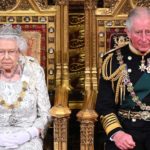EMANUELE LOMBARDINI
“London Bridge is down”. And now? What’s going to happen now? This is the question of many on the banks of the Thames. Because like it or not, Queen Elizabeth II, in addition to being an active witness of our time, was also in some way protagonist of most the events that marked contemporary history.
She was there when, on October 18 1972, the Parliament’s European Communities Act sanctioned the entry of the United Kingdom in the European Union and she was there when the United Kingdom decided to leave it by implementing Brexit.
The independence pressures of Ireland, which caused thirty years of war, ended with a fragile peace, and those of Scotland, the Falkland Islands war, the death of Princess Diana Spencer, the arrival at the court of Camilla Parker Bowles, up to the recent events which involved her nephews. The discreet, never invasive but decisive charisma of Queen Elizabeth marked the most delicate moments in the United Kingdom.
Her presence was somehow reassuring because, under the umbrella of the crow, there was always a solution and if the United Kingdom has become the nation it is now, after all it owes it a little to the beloved Queen, who was able to keep in step with the times, by making her image more approachable, less forbidding, not shirking self-irony and rather transforming it into a precious virtue.
This ability to be able to propose herself as “the people’s” monarch did not prevent her from using authority and resolve when necessary and perhaps for this reason her popularity soon went beyond British borders.
With her death and the accession to the throne of Charles III, there is no doubt that the United Kingdom is turning the page and is about to experience a new phase. The challenges on the table are many. First of all, the slowly dissolving Commonwealth: after Barbados, Jamaica is also thinking of detaching itself from the Crown and especially in Central American countries there is a strong desire for a Republic.
Then there is the bigger question, the one that concerns the issues of Scotland and Northern Ireland. Brexit has opened a boiling pot and now more than ever the future of the UK will depend from the new king’s ability to keep it under control. Especially in Scotland, where First Minister Nicola Sturgeon promised a new referendum on the separation from Great Britain. There will be only two options: to concede a referendum and risk it, in the hope of a new negative outcome that would probably definitively close the issue or refuse, with the risk, however, of fueling the independence forces even more.
But even in Ireland, where the affirmation of Sinn Fein also in Ulster has affected the unionist majority, the United Kingdom risks paying dearly for the economic consequences of Brexit on the Northern Irish market.
More prosaically, Prince Harry’s next book on the affairs of the Crown could also prove to be a dangerous boomerang.
But in the end, perhaps the greatest burden for King Charles III will be the constant shadow of the comparison with his mother, which will be as inevitable as it is cumbersome, something the new king will have to overcome as soon as possible. The UK needs strong and authoritative leadership, particularly in these complex years. For the new sovereign it is an opportunity to put his name on the future of Great Britain.
Europe is also looking to London, especially now that there is a war at Europe’s gates, capable of changing the economic and political equilibrium of the world. And then, now more than ever, God Save The King.
Author Profile
- Emanuele Lombardini is our blog editor-in-chief. He is an experienced journalist, a Libdem, Italian and passionate European.
Latest entries
Post Disclaimer
The opinions expressed by the author of this post do not necessarily represent the opinions and policies of ELfR.





